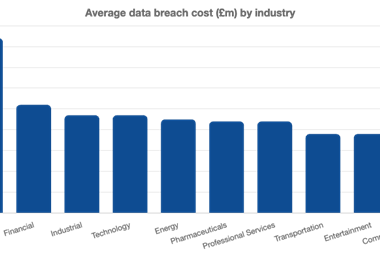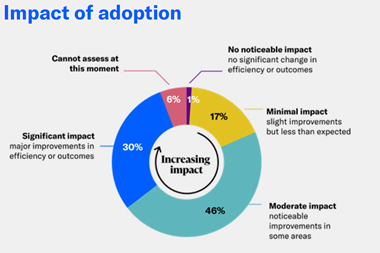Andrew Manners summarises current UK legal developments that increase corporate liability and raise new issues for management
The UK Government is extending the criminal law into a number of new areas.
The Enterprise Act
This Act aims to achieve more effective enforcement of consumer law and merger control. It also introduces the criminalisation of cartels and the disqualification of directors for breaches of competition law. According to the DTI the Act will 'deter those individuals who dishonestly operate hardcore cartels'.
Cartels are prohibited under the Competition Act 1998, and any business found to be a member of a cartel could be fined up to 10% of its UK turnover for up to three years. Argos and Littlewoods were recently fined in excess of £20m for price-fixing toys.
The new Act raises the stakes for company executives, by making it a criminal offence for individuals to dishonestly take part in certain specified cartels. Anyone convicted of the offence could receive a maximum of five years imprisonment and/or an unlimited fine. An individual will be guilty if they dishonestly agree with at least one other person to make or implement arrangements relating to undertakings that would fix prices and limit or prevent supply or production, share markets or customers or rig bids in the UK.
A problem for prosecutors is proving that the individuals concerned acted dishonestly. The usual test is two-fold.
The Act has also introduced a 'whistleblower' procedure which will confer immunity from prosecution upon those who confess their involvement in a cartel to the Office of Fair Trading. This creates its own problems regarding the reliability of such evidence, as it effectively amounts to the evidence of an accomplice.
There are also to be wider investigative powers which company executives should take note of. They include the ability to require any person believed to have relevant information to answer questions and/or produce documents. Failure to comply with this will be a criminal offence.
Corporate killing
New corporate killing legislation could make all employers in both the public and private sectors liable to prosecution. In May, UK Home Secretary, David Blunkett, commented: "There is great public concern at the criminal law's lack of success in convicting companies of manslaughter where death has occurred due to gross negligence by the organisation as a whole".
In support of its contention that the current law is inadequate, the Government cites the failure to convict following a number of terrible disasters. These include the sinking of The Herald of Free Enterprise, where the inquest jury returned 187 verdicts of unlawful killing. However, the prosecution against seven individuals and the company failed, because the various acts of negligence could not be aggregated or attributed to any individual who was a 'directing mind'. The King's Cross fire (31 deaths), Clapham (35 deaths) and Southall rail disasters (seven deaths) are other examples. Manslaughter charges failed because of the need to identify individuals whose gross negligence amounted to that of the company itself. However, six senior managers and two companies were charged in July with manslaughter over the Hatfield rail crash, which killed four people and injured more than 100.
The Government's proposals are based on the Law Commission's report No.237, which not only introduces the new offence of corporate killing but also the individual involuntary manslaughter offences of reckless killing and killing by gross carelessness, and a likely third offence of death resulting from intentional/reckless causing of minor injury.
Provisional Health and Safety Executive (HSE) figures for 2001/02 show that 249 workers were killed in accidents (204 employees and 45 self-employed) plus 384 members of the public. The HSE contends that at least 70% of incidents causing death or serious injury were due to health and safety management failures.
Under current law, to prove corporate criminal liability for manslaughter, an individual who can be 'identified as the embodiment of the company itself' must first be shown to be guilty of manslaughter. It is often very difficult to identify one individual, and it becomes even more problematic in larger companies where no single person has sole responsibility for health and safety. There have been only three successful prosecutions for corporate manslaughter in English legal history, and all three of them involved small companies.
The Home Secretary wants the new legislation to 'bite' the large companies, but it is likely that the Government will cast the net wider than the corporate sector. The preferred target is all 'undertakings'. This has been interpreted in other legislation as 'any trade or business or other activity providing employment'. Schools, hospital trusts, partnerships, and unincorporated charities could all face potential liability.
The new corporate killing offence will include killing by gross carelessness, (ie where the corporation's conduct in causing death fell far below what could reasonably be expected). The corporate offence will not (unlike the individual offence) require that the risk be obvious, or that the defendant be 'capable of
appreciating' the risk.
A death will be regarded as being caused by the corporation if it is caused by a management failure (ie the way in which its activities are managed/organised) which fails to ensure the health and safety of persons employed in, or affected by, its activities. Individuals within the company will still be liable for the offences of reckless killing and killing by gross carelessness, as well as the company being liable for corporate killing.
The likely penalties will be a fine and orders for remedial action. Additional enforcement options are anticipated, such as disqualification of directors and measures to prevent a company becoming insolvent to evade liability. Although the Government wants to be able to freeze assets pending the outcome of a prosecution, this would be difficult, not least because of a fundamental principle of English law - the presumption of innocence.
Money laundering
The Proceeds of Crime Act 2002 covers any 'criminal property' - the product of any criminal conduct and not just drug trafficking, serious fraud or terrorism. The threshold of proof for a conviction is quite low, namely knowledge or reasonable suspicion that the property was the product of criminal behaviour.
The second European Money Laundering Directive (probably effective this autumn) will apply to all businesses. To ensure compliance, businesses must set up a reporting structure and all staff should be trained in its use.
Solutions
Risk management and contingency plans are key to preventing, or at least reducing the potential for, any criminal liability of key individuals and the organisation itself. Legal advice should be obtained and procedures developed to deal with 'raids' on premises and investigations by the police and/or the HSE.
There should also be a written contingency plan with clear and specific roles and responsibilities for individuals. In a crisis situation, issues of immediate concern should be search and seizure, arrest and police interviews. There might also be issues of separate legal representation for the individuals concerned and the company where conflicts of interest arise.
Companies should establish a crime risk management policy to include:
The impact of any criminal investigation or conviction needs to be effectively managed, as adverse publicity could be very damaging. With the plethora of new regulations and legislation emerging in the UK, companies might well consider having audits undertaken by specialist lawyers.
Andrew Manners is a partner with Hugh James solicitors,Tel: 01495 223328
MONEY LAUNDERING PREVENTION
The Joint Money Laundering Steering Group (JMLSG) provides guidance notes for the financial sector on money laundering prevention and compliance. It says that The Proceeds of Crime Act has changed the face of anti money laundering legislation: law enforcement have been given a whole new battery of investigation tools, and extensive new obligations have been imposed on the financial sector. In addition, the new Money Laundering Regulations, which are being introduced to implement the Second European Directive, will bring the UK up to date with enhanced international standards.
Although the guidance notes are designed specifically to cover the activities of those regulated as financial sector businesses, most of the content is generally applicable to other companies and businesses carrying out relevant financial activities, for example those providing credit facilities, bureaux de change and company formation agents. Where separate guidance is issued for accountants and lawyers by the appropriate regulatory bodies, this will clearly prevail.
www.jmlsg.org.uk
D&O LIABILITY TRENDS
Companies have been operating in a market of depressed share values coupled with greater exposure to risk and liabilities, placing greater insurance costs on businesses, at a time when they can least afford it. Nowhere is this more apparent than in the market for D&O cover for company boards.
Aon Professional Risks has conducted research among 55 companies in the UK and Europe, tracking the increase in D&O premiums over the past three years.
In the period 2000-2002, the average cost of premiums per £m of cover increased by 246%. The increase was been consistent over 2000-2001, and 2001-2002.
Anecdotal evidence for 2003 suggests that the cost of D&O cover will continue to increase, but not at the rates experienced over the past three years. One reason is that new capital has been moving into the market, notably from Bermuda, over the past six months. However, the situation remains fragile, says Aon. If any major European companies were to be hit with serious litigation or class actions (of which there is an increasing risk as a result of US trends), the cost of cover could spiral. It summarises the message for companies and their financial directors as the fact that they need to undertake a thorough review of their risk management strategy and ensure they are exploiting the full range of risk transfer options available.



















